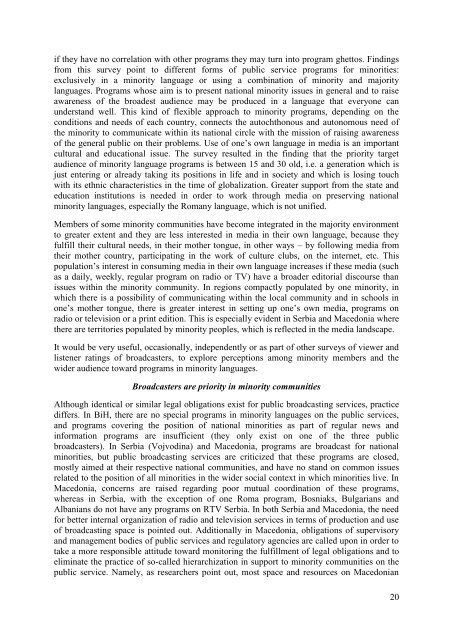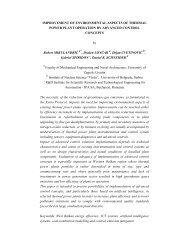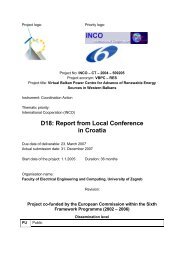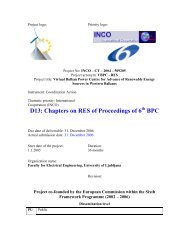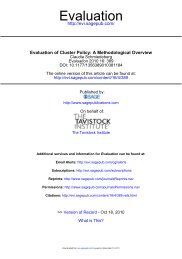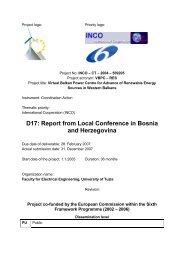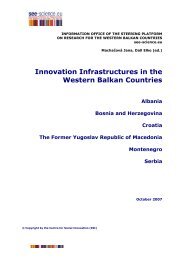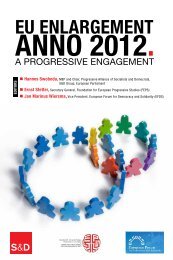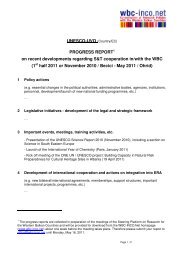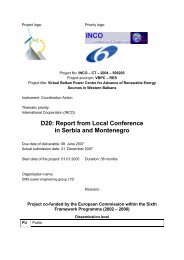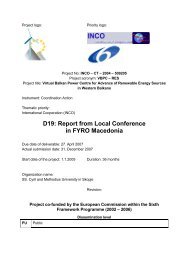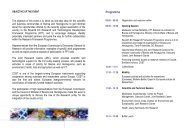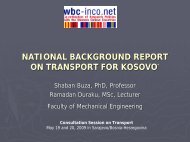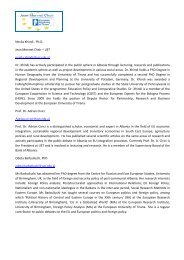MANJINE I MEDIJI NA ZAPADNOM BALKANU - RRPP
MANJINE I MEDIJI NA ZAPADNOM BALKANU - RRPP
MANJINE I MEDIJI NA ZAPADNOM BALKANU - RRPP
Create successful ePaper yourself
Turn your PDF publications into a flip-book with our unique Google optimized e-Paper software.
if they have no correlation with other programs they may turn into program ghettos. Findings<br />
from this survey point to different forms of public service programs for minorities:<br />
exclusively in a minority language or using a combination of minority and majority<br />
languages. Programs whose aim is to present national minority issues in general and to raise<br />
awareness of the broadest audience may be produced in a language that everyone can<br />
understand well. This kind of flexible approach to minority programs, depending on the<br />
conditions and needs of each country, connects the autochthonous and autonomous need of<br />
the minority to communicate within its national circle with the mission of raising awareness<br />
of the general public on their problems. Use of one’s own language in media is an important<br />
cultural and educational issue. The survey resulted in the finding that the priority target<br />
audience of minority language programs is between 15 and 30 old, i.e. a generation which is<br />
just entering or already taking its positions in life and in society and which is losing touch<br />
with its ethnic characteristics in the time of globalization. Greater support from the state and<br />
education institutions is needed in order to work through media on preserving national<br />
minority languages, especially the Romany language, which is not unified.<br />
Members of some minority communities have become integrated in the majority environment<br />
to greater extent and they are less interested in media in their own language, because they<br />
fulfill their cultural needs, in their mother tongue, in other ways – by following media from<br />
their mother country, participating in the work of culture clubs, on the internet, etc. This<br />
population’s interest in consuming media in their own language increases if these media (such<br />
as a daily, weekly, regular program on radio or TV) have a broader editorial discourse than<br />
issues within the minority community. In regions compactly populated by one minority, in<br />
which there is a possibility of communicating within the local community and in schools in<br />
one’s mother tongue, there is greater interest in setting up one’s own media, programs on<br />
radio or television or a print edition. This is especially evident in Serbia and Macedonia where<br />
there are territories populated by minority peoples, which is reflected in the media landscape.<br />
It would be very useful, occasionally, independently or as part of other surveys of viewer and<br />
listener ratings of broadcasters, to explore perceptions among minority members and the<br />
wider audience toward programs in minority languages.<br />
Broadcasters are priority in minority communities<br />
Although identical or similar legal obligations exist for public broadcasting services, practice<br />
differs. In BiH, there are no special programs in minority languages on the public services,<br />
and programs covering the position of national minorities as part of regular news and<br />
information programs are insufficient (they only exist on one of the three public<br />
broadcasters). In Serbia (Vojvodina) and Macedonia, programs are broadcast for national<br />
minorities, but public broadcasting services are criticized that these programs are closed,<br />
mostly aimed at their respective national communities, and have no stand on common issues<br />
related to the position of all minorities in the wider social context in which minorities live. In<br />
Macedonia, concerns are raised regarding poor mutual coordination of these programs,<br />
whereas in Serbia, with the exception of one Roma program, Bosniaks, Bulgarians and<br />
Albanians do not have any programs on RTV Serbia. In both Serbia and Macedonia, the need<br />
for better internal organization of radio and television services in terms of production and use<br />
of broadcasting space is pointed out. Additionally in Macedonia, obligations of supervisory<br />
and management bodies of public services and regulatory agencies are called upon in order to<br />
take a more responsible attitude toward monitoring the fulfillment of legal obligations and to<br />
eliminate the practice of so-called hierarchization in support to minority communities on the<br />
public service. Namely, as researchers point out, most space and resources on Macedonian<br />
20


